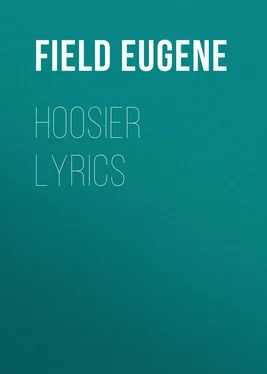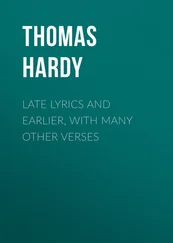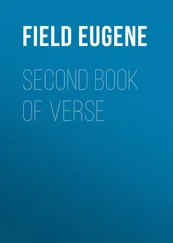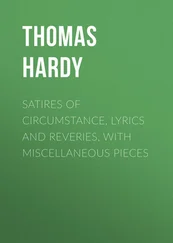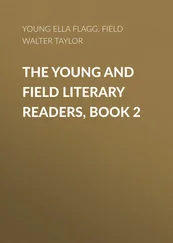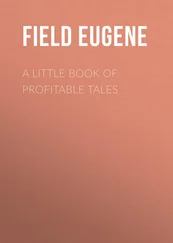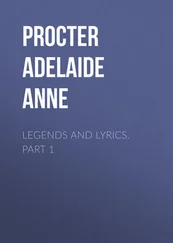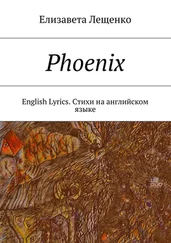Eugene Field - Hoosier Lyrics
Здесь есть возможность читать онлайн «Eugene Field - Hoosier Lyrics» — ознакомительный отрывок электронной книги совершенно бесплатно, а после прочтения отрывка купить полную версию. В некоторых случаях можно слушать аудио, скачать через торрент в формате fb2 и присутствует краткое содержание. Жанр: foreign_antique, foreign_prose, foreign_poetry, на английском языке. Описание произведения, (предисловие) а так же отзывы посетителей доступны на портале библиотеки ЛибКат.
- Название:Hoosier Lyrics
- Автор:
- Жанр:
- Год:неизвестен
- ISBN:нет данных
- Рейтинг книги:4 / 5. Голосов: 1
-
Избранное:Добавить в избранное
- Отзывы:
-
Ваша оценка:
- 80
- 1
- 2
- 3
- 4
- 5
Hoosier Lyrics: краткое содержание, описание и аннотация
Предлагаем к чтению аннотацию, описание, краткое содержание или предисловие (зависит от того, что написал сам автор книги «Hoosier Lyrics»). Если вы не нашли необходимую информацию о книге — напишите в комментариях, мы постараемся отыскать её.
Hoosier Lyrics — читать онлайн ознакомительный отрывок
Ниже представлен текст книги, разбитый по страницам. Система сохранения места последней прочитанной страницы, позволяет с удобством читать онлайн бесплатно книгу «Hoosier Lyrics», без необходимости каждый раз заново искать на чём Вы остановились. Поставьте закладку, и сможете в любой момент перейти на страницу, на которой закончили чтение.
Интервал:
Закладка:
Eugene Field
Hoosier Lyrics
INTRODUCTION
From whatever point of view the character of Eugene Field is seen, genius – rare and quaint presents itself in childlike simplicity. That he was a poet of keen perception, of rare discrimination, all will admit. He was a humorist as delicate and fanciful as Artemus Ward, Mark Twain, Bill Nye, James Whitcomb Riley, Opie Read, or Bret Harte in their happiest moods. Within him ran a poetic vein, capable of being worked in any direction, and from which he could, at will, extract that which his imagination saw and felt most. That he occasionally left the child-world, in which he longed to linger, to wander among the older children of men, where intuitively the hungry listener follows him into his Temple of Mirth, all should rejoice, for those who knew him not, can while away the moments imbibing the genius of his imagination in the poetry and prose here presented.
Though never possessing an intimate acquaintanceship with Field, owing largely to the disparity in our ages, still there existed a bond of friendliness that renders my good opinion of him in a measure trustworthy. Born in the same city, both students in the same college, engaged at various times in newspaper work both in St. Louis and Chicago, residents of the same ward, with many mutual friends, it is not surprising that I am able to say of him that "the world is better off that he lived, not in gold and silver or precious jewels, but in the bestowal of priceless truths, of which the possessor of this book becomes a benefactor of no mean share of his estate."
Every lover of Field, whether of the songs of childhood or the poems that lend mirth to the out-pouring of his poetic nature, will welcome this unique collection of his choicest wit and humor.
Charles Walter Brown. Chicago, January, 1905.HOOSIER LYRICS PARAPHRASED
We've come from Indiany, five hundred miles or more,
Supposin' we wuz goin' to get the nominashin, shore;
For Col. New assured us (in that noospaper o' his)
That we cud hev the airth, if we'd only tend to biz.
But here we've been a-slavin' more like bosses than like men
To diskiver that the people do not hanker arter Ben;
It is fur Jeems G. Blaine an' not for Harrison they shout —
And the gobble-uns 'el git us
Ef we
Don't
Watch
Out!
When I think of the fate that is waiting for Ben,
I pine for the peace of my childhood again;
I wish in my sorrow I could strip to the soul
And hop off once more in the old swimmin' hole!
The world is full of roses, and the roses full of dew
(Which is another word for soup) that drips for me and you.
"Little Benjy! Little Benjy!" chirps the robin in the tree;
"Little Benjy!" sighs the clover, "Little Benjy!" moans the bee;
"Little Benjy! Little Benjy!" murmurs John C. New,
A-stroking down the whiskers which the winds have whistled through.
Looks jest like his grampa, who's dead these many years —
He wears the hat his grampa wore, pulled down below his ears;
We'd like to have him four years more, but if he cannot stay —
Nothin' to say, good people; nothin' at all to say!
There, little Ben, don't cry!
They have busted your boom, I know;
And the second term
For which you squirm
Has gone where good niggers go!
But Blaine is safe, and the goose hangs high —
There, little Ben, don't cry!
Mabbe we'll git even for this unexpected shock,
When the frost is on the pumpkin and the fodder's in the shock!
Oh, the newspaper man! He works for paw;
He's the liveliest critter 'at ever you saw;
With whiskers 'at reach f'om his eyes to his throat.
He knows how to wheedle and rivet a vote;
He wunst wuz a consul 'way over the sea —
But never again a consul he'll be!
He come back f'om Lon'on one mornin' in May —
He come back for bizness, an' here he will stay —
Ain't he a awful slick newspaper man?
A newspaper, newspaper, newspaper man!
You kin talk about yer cities where the politicians meet —
You kin talk about yer cities where a decent man gits beat;
With the general run o' human kind I beg to disagree —
The little town of Tailholt is good enough f'r me!
Chicago was a pleasant town in eighteen-eighty-eight,
And I have lived in Washington long time in splendid state;
But all the present prospects are that after ninety-three
The little town o' Tailholt 'll be good enough f'r me!
"I wunst lived in Indiany," said a consul, gaunt and grim,
As most of us Blaine delegates wuz kind o' guyin' him;
"I wunst lived in Indiany, and my views wuz widely read,
Fur I run a daily paper w'ich 'Lije Halford edited;
But since I've been away f'm home, my paper (seems to me)
Ain't nearly such a inflooence ez wot it used to be;
So, havin' done with consulin', I'm goin' to make a break
Towards making of a paper like the one I used to make."
Think, if you kin, of his term mos' through,
An' that ol' man wantin' a secon' term, too;
Picture him bendin' over the form
Of his consul-gineril, stanch an' grim,
Who has stood the brunt of that jimblain storm —
An' that ol' man jest wrapt up in him!
An' the consul-gineril, with eyes all bleared
An' a haunted look in his ashen beard,
Kind o' gaspin' a feeble way —
But soothed to hear the ol' man say
In a meaning tone (as one well may
When words are handy and – 's to pay):
"Good-by, John; take care of yo' self !"
GETTIN' ON
When I wuz somewhat younger,
I wuz reckoned purty gay —
I had my fling at everything
In a rollickin', coltish way,
But times have strangely altered
Since sixty years ago —
This age of steam an' things don't seem
Like the age I used to know,
Your modern innovations
Don't suit me, I confess,
As did the ways of the good ol' days —
But I'm gettin' on, I guess.
I set on the piazza
An' hitch around with the sun —
Sometimes, mayhap, I take a nap,
Waitin' till school is done,
An' then I tell the children
The things I done in youth,
An' near as I can (as a venerable man)
I stick to the honest truth!
But the looks of them 'at listen
Seems sometimes to express
The remote idee that I'm gone – you see!
An' I am gettin' on, I guess.
I get up in the mornin',
An' nothin' else to do,
Before the rest are up and dressed
I read the papers through;
I hang 'round with the women
All day an' hear 'em talk,
An' while they sew or knit I show
The baby how to walk;
An' somehow, I feel sorry
When they put away his dress
An' cut his curls ('cause they're like a girl's) —
I'm gettin' on, I guess!
Sometimes, with twilight round me,
I see (or seem to see)
A distant shore where friends of yore
Linger and watch for me;
Sometimes I've heered 'em callin'
So tenderlike 'nd low
That it almost seemed like a dream I dreamed,
Or an echo of long ago;
An' sometimes on my forehead
There falls a soft caress,
Or the touch of a hand – you understand —
I'm gettin' on, I guess.
MINNIE LEE
Writing from an Indiana town a young woman asks: "Is the enclosed poem worth anything?"
We find that the poem is as follows:
She has left us, our own darling —
And we never more shall see
Here on earth our dearly loved one —
God has taken Minnie Lee.
Интервал:
Закладка:
Похожие книги на «Hoosier Lyrics»
Представляем Вашему вниманию похожие книги на «Hoosier Lyrics» списком для выбора. Мы отобрали схожую по названию и смыслу литературу в надежде предоставить читателям больше вариантов отыскать новые, интересные, ещё непрочитанные произведения.
Обсуждение, отзывы о книге «Hoosier Lyrics» и просто собственные мнения читателей. Оставьте ваши комментарии, напишите, что Вы думаете о произведении, его смысле или главных героях. Укажите что конкретно понравилось, а что нет, и почему Вы так считаете.
